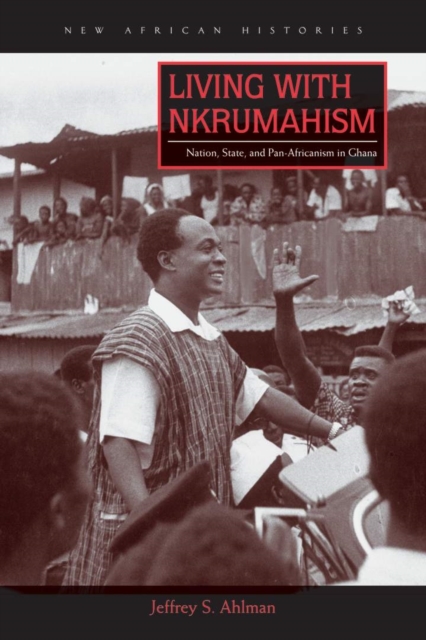
Living with Nkrumahism : Nation, State, and Pan-Africanism in Ghana Hardback
by Jeffrey S. Ahlman
Part of the New African Histories series
Hardback
Description
In the 1950s, Ghana, under the leadership of Kwame Nkrumah and the Convention People's Party, drew the world's attention as anticolonial activists, intellectuals, and politicians looked to it as a model for Africa's postcolonial future.
Nkrumah was a visionary, a statesman, and one of the key makers of contemporary Africa.
In Living with Nkrumahism, Jeffrey S. Ahlman reexamines the infrastructure that organized and consolidated Nkrumah's philosophy into a political program. Ahlman draws on newly available source material to portray an organizational and cultural history of Nkrumahism.
Taking us inside bureaucracies, offices, salary structures, and working routines, he painstakingly reconstructs the political and social milieu of the time and portrays a range of Ghanaians' relationships to their country's unique position in the decolonization process.
Through fine attunement to the nuances of statecraft, he demonstrates how political and philosophical ideas shape lived experience. Living with Nkrumahism stands at the crossroads of the rapidly growing fields of African decolonization, postcolonial history, and Cold War studies.
It provides a much-needed scholarly model through which to reflect on the changing nature of citizenship and political and social participation in Africa and the broader postcolonial world.
Information
-
Available to Order - This title is available to order, with delivery expected within 2 weeks
- Format:Hardback
- Pages:322 pages
- Publisher:Ohio University Press
- Publication Date:16/10/2017
- Category:
- ISBN:9780821422922
Other Formats
- Paperback / softback from £26.35
Information
-
Available to Order - This title is available to order, with delivery expected within 2 weeks
- Format:Hardback
- Pages:322 pages
- Publisher:Ohio University Press
- Publication Date:16/10/2017
- Category:
- ISBN:9780821422922










